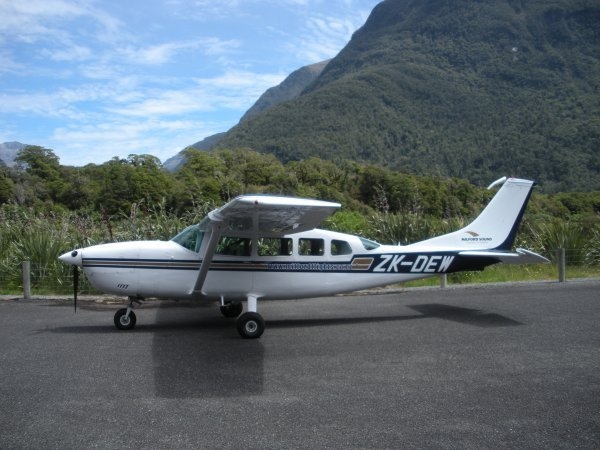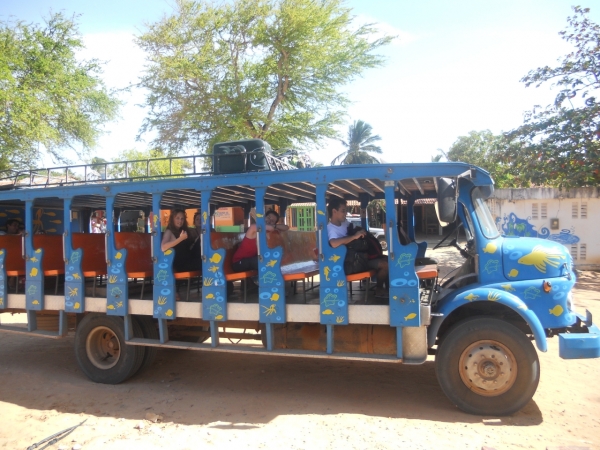Don't miss out on the best jobs!
Subscribe to HelpGoAbroad and weekly we will sent you an email with latest job posts. Provide your email address below
Tokyo. London. Paris. New York City. Rio de Janeiro. All of these locations exhibit the bustling, thriving, congested characteristics that fulfil our expectations of major cities. When people begin to travel abroad, they typically travel to popular locations such as capitals and other major destinations because these places are well established for tourists with comfortable accommodations and people have established a knack for multiple languages in order to satisfy the diverse populations visiting the trendy locations. However, once many people have a taste for travel, they start to branch out and become more adventurous with their choice of destination, which can then lead them to more ‘out there’ places - places that some people may have never even heard of!
Donsol. Bintan Island. Exmouth. Jericoacoara. Pai. Most people would struggle to pinpoint each of these locations, and that comes from the fact that they are all relatively isolated spots, that are known for specific trademark attractions. Chances are likely that you wouldn’t typically travel to these types of locations unless you were interested in their particular attractions or you have an employment or volunteer opportunity in the area. A great majority of my own travels have led me to isolated locations that not only challenged my social skills, but my overall survival skills with the limited resources available in these remote areas.
Getting There
One of the most prominent aspects of living in an isolated area is the tricky trek to get there. Navigating your way through obscure airports, taking endless bus rides over winding roads and finagling ferry routes are all part of the package when you are adventuring off the beaten path. What you’ll often find is that the extensive journey you go through tends to enhance your appreciation of your final destination. What that long journey also means is that when it comes to leaving the area when you are in need of say, a dentist appointment or certain supplies, you have just as long of a voyage out into the ‘real world’.
Another reason that people do not usually head to remote destinations without specific purpose is because all of the tedious transportation costs more than flying to major cities. When it comes to these far out places, you will usually have to take a few different forms of transportation to get there. In the case of Jericoacoara, a Northeastern Brazilian beach town made up of only three main streets and a central square, it took two days to travel from Seattle, WA. Beginning with a flight from Seattle to New York, then New York to Rio de Janeiro, another flight from Rio to Fortaleza and then an eight-hour bus ride from the airport till finally arriving in Jericoacoara. The nearest town to Jeri is called Jijoca and is an hour away by bus, but you still wouldn’t find much more in Jijoca than you would in Jeri.
Social Life
The social aspect of living in an isolated location can be one of the hardest factors to deal with for many people. First of all, there is usually a very limited selection of bars and clubs to head to, places where you may have previously been used to meeting new people, as well as the lack of a movie theater and other forms of entertainment such as bowling alleys, go-kart tracks or art galleries. If you have arrived in the small town as an individual, you may find it difficult to meet new friends given the lack of social gathering spots. However, you will quickly learn where the locals gather whether that’s in the waves, basketball court or at one particular local watering hole. If there are other foreigners to the area, you are most likely have similar mind sets to have found yourself in this special location in the first place and you will most likely gravitate towards each other or encounter them through overlap in your daily duties around town.
Exmouth, a town in Western Australia known for the opportunity to swim with mammoth whale sharks, has two main bars and a population full of water lovers that busy themselves with fishing, surfing, and working on whale shark boats. Most people, who are not Exmouth natives, gravitate to the little community of mermaids and mermen because they are interested in working in the whale shark, dive or fishing industry. Due to the town’s petite size, you will most likely run into the same people over and over again whether you’re out on the water, grocery shopping or grabbing a beer. This is what you will usually find when you live in a small town, every one knows every one and every thing that every one else does, whether you want to know or not.
Though some may find Exmouth, which has a population of about 6,000 during the busy season (only 2,200 in off season), to be limited when it comes to new social opportunities, other locations such as a tropical island may leave you feeling even more starved for new company. When you work for a resort found on a secluded paradise island, it’s likely that the same fellow staff members will surround you day after day. Even if you have a crew that you would consider the dream team, some people may find the restricted social opportunities suffocating. If you have a team you are less than thrilled to be around, the lack of friends may even lead to depression and a strong desire to escape your paradise prison. However, when you work at a resort, tourists can be your saving grace as they bring a breath of fresh personality to your world, the unfortunate truth is that they will eventually leave when their vacation days dwindle down to zero.
Language
If you are travelling to a country that speaks a different language, the areas that receive heavy tourism traffic will be more accustomed to speaking a variety of languages to accommodate the visitors, but the remote areas will be much more localized and speak their native dialect. Not only are you now limited in the numbers of people that you can build relationships with, but you are restricted in your ability to communicate as well. Emotions that may result from this predicament include feeling inadequate for not being able to speak their language, feeling lost and dumb from not being able to make sense of what anyone is saying and ultimately, feeling like an outcast due to your inability to connect and make friends. However, rather than let yourself be held back by the language barrier, this is actually an opportunity to learn a new language and to practice your non-verbal communication skills such as body language, drawing and simply doing activities together that do not require conversation.
Know Before You Go
Whether it’s a job that has brought you out to an isolated island or your quest for the best waves have led you to a town so small it’s not even on the map, be realistic with yourself about moving to an out-of-the-way oasis. Even if you come from a small town, travelling abroad has its own adversities and adventures that can challenge your character, your strength and your ability to adapt. Can you handle the lack of social stimulation or is that what you are trying to escape in the first place? Are you prepared for the language barrier that waits in your new home? It is important to be prepared for the conditions that you will be living in so that you don’t arrive and find yourself feeling ultimately stranded and without an easy way out, but just keep in mind that every overseas adventure is an opportunity for you to grow into a more informed, knowledgeable and experienced individual.
Sign in to publish a comment





Be the first to comment on this post.